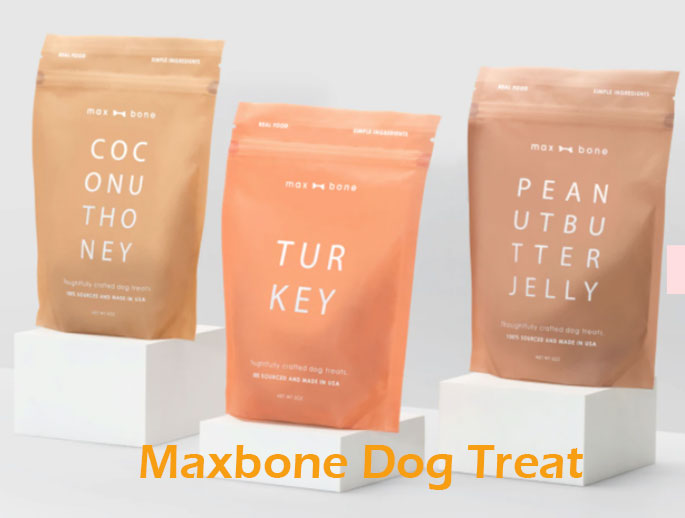
With the growth of the dog industry in general, we have also seen a massive growth in new dog food and dog treat companies. Dog owners are realising that not all dog treats are created equal and new dog treat retailers often don’t have the expertise or time to create a full range of healthy dog treats.
Besides the health aspect (which we always think should be paramount) – some owners just want functional treats (like long lasting ones that can occupy their do when they go out) – or fast eating dog training treats. With the explosion of dog treat companies has come extra niches.
Because of the high competition and the need to differentiate, private label manufacturing has become a viable opportunity for companies who want to sell dog treats without the hassle of actually being involved in the whole process.
This article looks into private label manufacturing in wholesale dog treats, But with focus on what special needs small retailers might require that can be better supplied by the smaller suppliers.
What is private label manufacturing/ supply?
Private label manufacturing, or white labelling, is the process where one company manufactures or aggregates the dog treats and supplies a smaller company either pre-packed in smaller companies bags or for the smaller company to pack their own bags from the bulk stock – UNDER the smaller companies brand.
Initially this might seem as an unnecessary complication, and an extra step in the process, but it is often vital to a smaller business’s success.
There are many reasons that businesses want this, but one of the major ones is giving them the chance to extend their range of other pet products without having to buy large quantities of treats, while still enjoying the benefit of selling the product under their own brand. Hence helping brand recognition and loyalty.
But this is just the end game of what the process provides. We will now look at all the other benefits that white labelling provides. As well as if you need white labelling to sell treats at all. Then we will look at the reasons you mightn’t want white labelling,
Private labelling wholesale dog treats – the difficulties
MOQ – Minimum Order Quantities and CUSTOMER satisfaction:
This is one of the first things that most of our potential clients ask us about. They have been told by the big corporations of a ridiculously high number of cartons and cash that they need to give for each order.
The large players do this because it makes their life easier. They don’t want to customize or deal with smaller players, and they often do retail themselves, so to maximize profit and minimize competition, they set high MOQs to discourage other companies from joining the market.
This is also the major advantage of smaller dog treat wholesalers, who are a lot more in touch with the difficulties faced by small business and more likely to offer split carton options, and much less than pallet minimum quantities.
Quality of goods
Not only do small players often want a treat that not everyone else is selling, but they also want it to be exceptional quality. They know that buying in smaller batches means that they will often have to pay a slightly higher price for its supply. So, they expect the best in quality for their boutique clients.
You will often notice that when you are buying by the pallet, you can get entire boxes of treats that have gone off by being mouldy etc. Sometimes the big players will offer to replace them, or will offer you a percentage discount on future orders. It’s all about the terms that the big player sets.
And this is the other major advantage of smaller wholesale suppliers. They will usually want to keep all of their customers so they will replace the goods in entirety. And because they are packing the smaller boxes themselves, not using third parties or not giving you boxes that have been stacked in a massive NO air conditioning warehouse for over a year, you will rarely get a bad bag, let alone a bad box of treats.
CONCLUSIONS
There are several layers of dog treat wholesalers you can choose from. The biggest players might give you a slight discount, but you will often get their worst stock. Often old stock, and little duty of care of customer service, let alone customisation of offering. This means that they are closest to a pick/ pack and send model that internet startups that don’t really care about the product use. It means that they don’t have to carry and stock, and are far removed from the product – a very dangerous situation if you want a high-quality dog treat that has been properly stored.
The alternative that we suggest is more akin to what we can offer. A wide range of quality treats, properly stored and in low MOQ quantities. For this you might pay a slightly higher price, but if you want to differentiate yourself, you want the option of a wide offering, of more unique treats, in the best of quality.
Another variation on this theme is customers like groomers or cafes who just want to offer their customers something different than their competition, so they provide high quality unique treats.
These people don’t necessarily want to have their own branding packets because they know that to get good prices on this packaging, at decent prices, they might have to buy 10,000 plastic pouches from overseas. And because a small wholesaler is less likely to have retail products in the majority of stores in your country – it means that the retail price the end customer wants to sell the products at doesn’t have to have incredibly bad margins to match the prices that supermarkets have forced down.
White label packaging from a dog treat wholesaler has many benefits and pitfalls to be aware of. Choose wisely.



